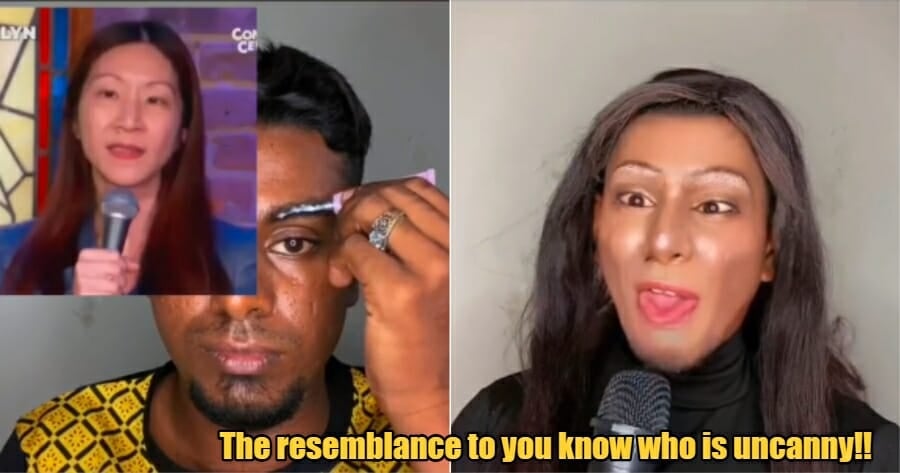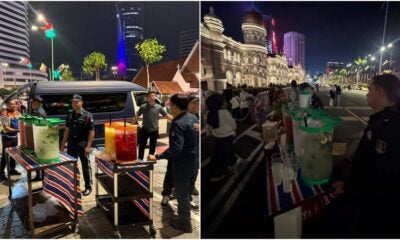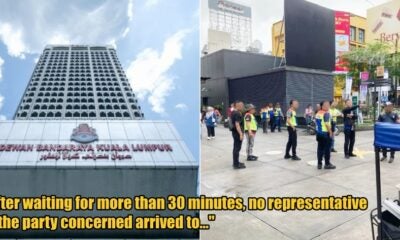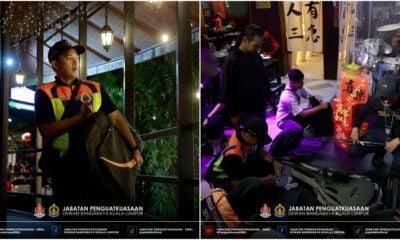More than 2 weeks after her infamous standup comedy video became viral, Jocelyn Chia and her antics are still hotly being discussed by the Malaysian public.
In fact, the authorities have also issued several statements about taking legal action against Chia for the standup routine. These include the Royal Malaysia Police (PDRM), which sought Interpol’s help to locate and identify the US comedian.

While a majority of Malaysians were enraged by Chia’s ‘tasteless’ joke, many saw PDRM’s actions as a bit over the top and a waste of time as the resources could be used for other, more pressing matters.
Furthermore, doubts have risen about whether legal action can actually be taken against the comedian, as she’s not even Malaysian or living here.

So, can Chia actually be charged in our country for the video? To find out, we’ve gotten in touch with a couple of Malaysian lawyers and here’s what they got to say.
PDRM’s investigations against Chia
Speaking to WORLD OF BUZZ, lawyers Luqman bin Mazlan and Mohd Irzan Iswatt, both partners at Kuala Lumpur-based law firm ADIL Legal, asserted that any charges against Chia must be made under provisions with extra-territorial jurisdiction.
This is because the comedian is not a Malaysian citizen or permanent resident. Furthermore, the video of the standup routine was recorded outside of Malaysia, specifically at the Comedy Cellar in New York, United States.

Luqman said that based on the statement by then Inspector-General of Police (IGP) Datuk Seri Acryl Sani on the matter, PDRM is investigating the comedian under Section 504 and 505(c) of the Penal Code, as well as under Section 233 of the Communications and Multimedia Act 1998.
Section 504 of the Penal Code is for intentional insult with intent to provoke a breach of the peace and Section 505(c) of the Penal Code is for statements conducing to public mischief. Meanwhile, Section 233 of the Communications and Multimedia Act 1998 is for improper use of network facilities or network services.

For illustration purposes
Hence, should the authorities want to charge Chia under these provisions, Luqman and Iswatt stressed the provisions themselves must be extra-territorial in nature. Well, spoilers alert, they’re not!
Extension of the Penal Code to extra-territorial offences
Iswatt elaborated that provisions with extra-territorial offences under the Penal Code are prescribed under Section 4 of the Code below:
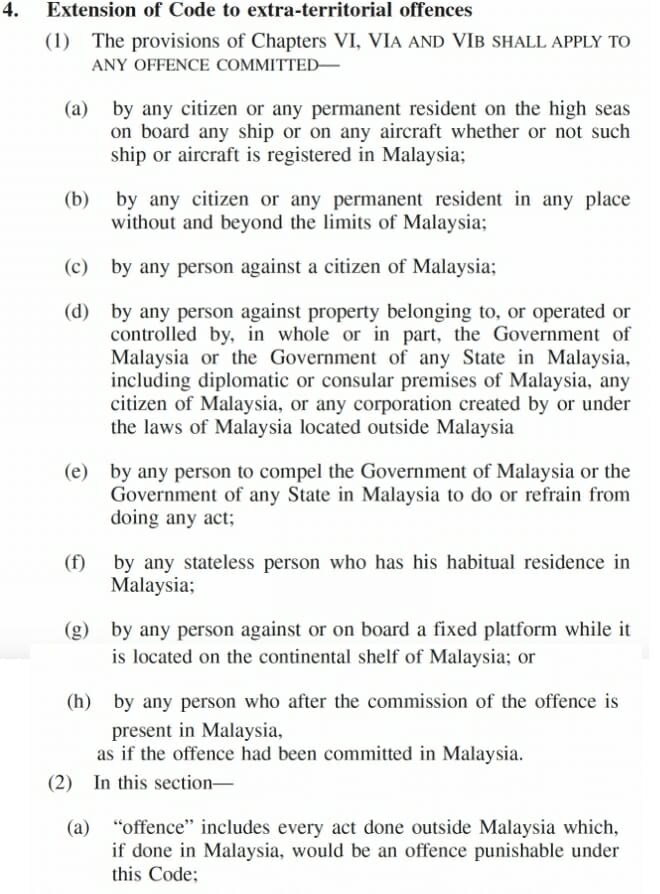
He further asserted that based on Section 4, only provisions under Chapter VI, VIA and VIB shall be deemed as extra-territorial offences, or in other words, can be applied to non-Malaysian citizens or permanent residents and committed outside of our country.
However, Section 504 and 505(c) of the Penal Code is part of Chapter XXII, hence the provisions don’t have extra-territorial jurisdiction. Applied to Chia’s case, given that she’s not a Malaysian citizen or permanent resident and that the offence was committed outside of the country, no action can be taken against her, even if she sets foot in Malaysia.
Extra-territorial offences under the Communications and Multimedia Act 1998
This is also the case for offences under the Communications and Multimedia Act 1998. Iswatt elaborated that Section 4 of the Act prescribes that any extraterritorial application of the legislation is only applicable to persons outside of Malaysia if:
- The person is a licensee under the Act
- Provides relevant facilities or services under the Act
Both definitions are not applicable to the US comedian, hence she may not be charged under the Communications and Multimedia Act 1998 too.
Luqman concurred with this and provided the judgement of the case of Amin Rayan v Menteri Dalam Negeri & ORS [2015] 8 CLJ 165 which is relevant to this discussion below:
Also read: M’sian Make Up Artist Hilariously Transforms Himself Into You Know Who!



